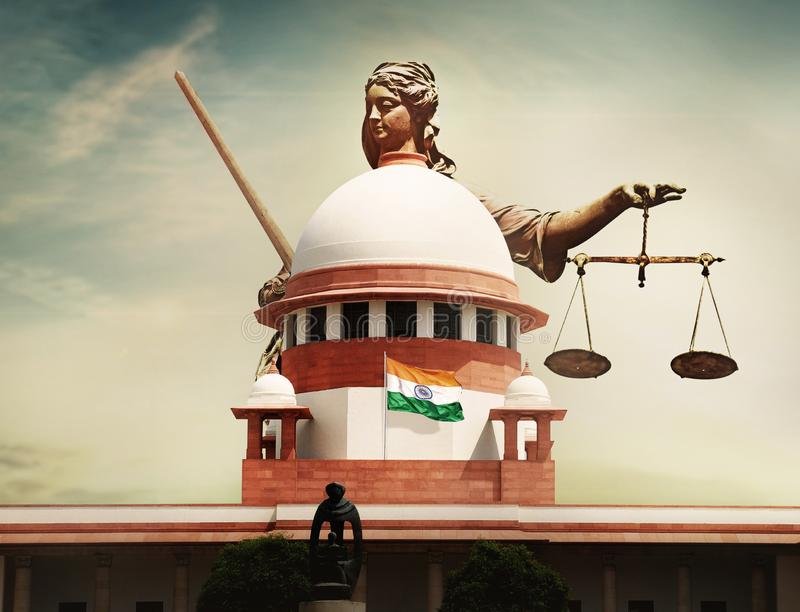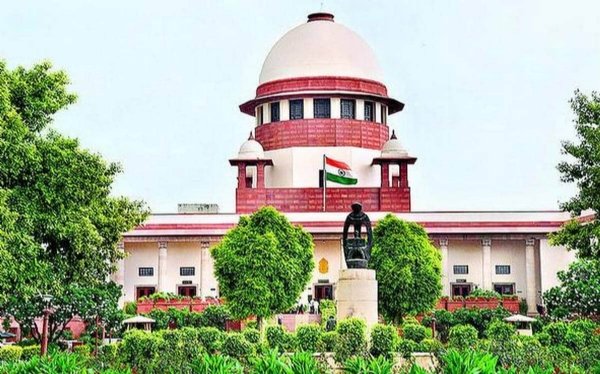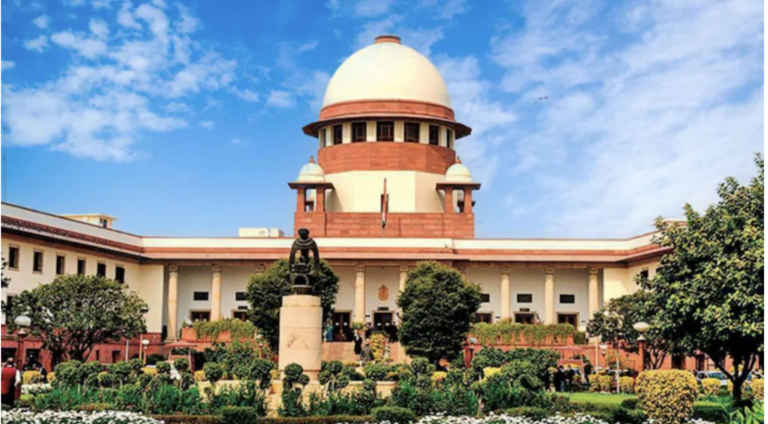Indian Lawyers and Human Rights Activists Association Express Gratitude as Bombay High Court Lists Long-Pending Petition Against Justice Revati Mohite Dere

Mumbai | Dated: 19 April 2025 :In a significant development hailed by members of the legal fraternity and human rights defenders across India, the Bombay High Court has listed for final hearing Writ Petition No. 6900 of 2023, which seeks criminal prosecution against sitting Judge Justice Revati Mohite Dere for alleged offences including judicial forgery, contempt of court, and abuse of constitutional authority.
The petition, which had remained pending without judicial hearing for nearly two years, is now scheduled for hearing on 22nd April 2025 at 4:30 PM, listed at Sr. No. 1 before the Division Bench of Hon’ble Justice Ravindra V. Ghuge and Hon’ble Justice Ashwin S. Bhobe. The Indian Lawyers and Human Rights Activists Association has publicly expressed its gratitude to Hon’ble Chief Justice Alok Aradhe for allowing long-suppressed judicial accountability to now proceed in accordance with the law.
The Petitioner has also formally approached the Hon’ble President of India, seeking sanction to prosecute Justice Revati Mohite Dere for her alleged involvement in criminal offences under the provisions of the Bharatiya Nyaya Sanhita (BNS).
The application for sanction was submitted under Case No. PRSEC/E/2024/0045960, dated 15.10.2024.
In accordance with Section 218 of the Bharatiya Nagarik Suraksha Sanhita (BNSS), it is expressly provided that if a request for sanction to prosecute a public servant is not rejected within a period of three months, the sanction shall be deemed to have been granted by operation of law.
Since no order of rejection has been communicated within the prescribed statutory timeframe, the Petitioner submits that deemed sanction now stands accorded, and as such, the Petitioner is legally empowered to initiate prosecution proceedings against Justice Revati Mohite Dere for the aforementioned offences.
Three important Interim Applications Also Scheduled for Hearing
In addition to the main writ petition, several Interim Applications (IAs) have been scheduled for hearing. Among these, one of the most controversial and widely criticized is the Intervention Application filed by the Bombay Bar Association (BBA), which has shocked many within the legal community for the sweeping, legally untenable, and constitutionally regressive position it has taken.
In its affidavit, the BBA has advanced the astonishing proposition that no prosecution can lie against a judge, even in cases where the judge:
- Commits serious offences such as forgery, corruption, or contempt of court,
- Engages in indecent, disrespectful, or hostile conduct toward members of the Bar,
- Violates statutory provisions with arbitrary or whimsical orders, or
- Willfully disobeys binding precedents of the Hon’ble Supreme Court and breaches constitutional mandates.
This blanket immunity theory propounded by the BBA has drawn sharp reactions from legal experts, senior advocates, and constitutional jurists, who have labelled it as an overruled and legally impermissible submission. They have emphasized that the stand taken by the BBA is contrary to settled legal principles laid down by Constitution Benches of the Hon’ble Supreme Court, which make it abundantly clear that judges are not above the law and can be prosecuted for criminal misconduct like any other citizen.
Moreover, the BBA’s stand is being widely condemned as a textbook case of institutional sycophancy, driven by certain members of the Bar who appear more committed to shielding judges—even in cases involving grave criminal misconduct—than to upholding constitutional morality and judicial accountability. By attempting to immunize judges from prosecution even for offences such as forgery, corruption, and contempt, the BBA has, according to legal experts, undermined the very ethos of a democratic legal system governed by the rule of law.
This posture, far from being a principled defence of judicial independence, is being described as a blatant betrayal of the Bar’s constitutional and ethical responsibility to act as guardians of justice. Critics assert that such a position not only erodes public faith in judicial impartiality, but also damages the credibility of the Bar as an independent and fearless stakeholder in the justice delivery system.
IA No. 14495 (St) of 2023: Petitioner Seeks Action Against BBA for Perjury, Contempt, and Filing Forged Resolution
In a powerful and scathing rebuttal, the petitioner has filed Interim Application No. 14495 (St) of 2023, seeking the initiation of criminal prosecution for perjury, contempt of court, and also disciplinary proceedings before the Bar Council against the concerned members of the Bombay Bar Association (BBA), including those who have affirmed and supported a false affidavit filed in the intervention application.
The said IA highlights and seeks action for the following serious transgressions:
- Filing an overruled and patently illegal submission, advancing the untenable proposition that judges are above criminal law, even when they commit serious offences such as forgery, corruption, and contempt;
- Producing a forged resolution purporting to show unanimous support from the Bar in favour of Justice Revati Mohite Dere, while deliberately suppressing internal opposition — notably, the written objection submitted by Senior Advocate Ishwarlal Agarwal, who categorically opposed the BBA’s intervention to shield the judge from accountability;
- Submitting a false affidavit backed by the aforementioned forged resolution, which was allegedly adopted without proper quorum, due process, or majority consent, thereby misleading the Hon’ble Court and undermining the credibility of the Bar.
The petitioner asserts that the BBA’s conduct amounts to a gross abuse of the legal process, an act of institutional sycophancy, and a betrayal of the constitutional duty of the Bar to uphold the integrity of the legal system and the doctrine of equality before law.
The IA further emphasizes that such actions are in direct conflict with binding precedents of the Hon’ble Supreme Court, which have unequivocally ruled that judges committing criminal offences can and must be prosecuted, either with prior sanction under certain circumstances or, in appropriate cases involving offences like forgery and contempt, even without sanction from the President of India.
The Hon’ble Supreme Court and High Courts have consistently ruled that judges are not immune from prosecution or disciplinary action when they commit criminal offences, including forgery, corruption, contempt of court, or abuse of judicial power. These rulings uphold the principle that judicial officers are bound by the law and are subject to criminal accountability like any other citizen, subject to certain procedural safeguards.
The following case laws establish the legal position that judges committing criminal offences can and must be prosecuted, either with prior sanction (in certain circumstances) or, in appropriate cases, even without sanction:
The petitioner has placed reliance on a long list of binding precedents affirming the legal accountability of judges:
- In Re: Justice C.S. Karnan, (2017) 7 SCC 1,
- R.R. Parekh v. High Court of Gujarat, (2016) 14 SCC 1,
- Raman Lal v. State of Rajasthan, 2000 SCC OnLine Raj 226,
- Shameet Mukherjee v. CBI, 2003 SCC OnLine Del 821
- Muzaffar Husain v. State of U.P., 2022 SCC OnLine SC 567
- Shrirang Yadavrao Waghmare v. State of Maharashtra, (2019) 9 SCC 144
- Govind Mehta Vs. State of Bihar (1971) 3 SCC 329,
- K. Rama Reddy Vs State 1998 (3) ALD 305,
- Deelip Bhikaji Sonawne Vs. The State of Maharashtra MANU/MH/0073/2003
· Bidhi Singh Vs. M. S. Mandyal 1993 CRI. L. J. 499,
· B.S. Sambhu v. T.S. Krishnaswamy, (1983) 1 SCC 11.
· Re: M.P. Dwivedi, (1996) 4 SCC 152
· New Delhi Municipal Council Vs. M/S Prominent Hotels Limited 2015 SCC Online Del 11910,
These rulings reaffirm that no judicial robe can shield a judge from criminal liability for wilful misconduct, especially in cases involving suppression of facts, falsification of court records, or granting favours to influential litigants.
Allegations Against Justice Revati Mohite Dere: Forgery, Suppression, and Favouritism
The petition contains grave allegations against Justice Revati Mohite Dere, accusing her of:
1. ICICI Bank Case – Forgery to grant bail to Smt. Chanda Kochhar
- The accused was booked under Section 409 IPC (criminal breach of trust by a public servant, punishable by life imprisonment).
- However, in her bail order, Justice Dere is misrepresented the offence as punishable with only seven years, thereby forging the judicial record to grant bail to the accused.
2. Allegations in the NCP MLA Mohite Case – Attempt to Murder and Assault on Police
In another serious instance cited in the petition, Justice Revati Mohite Dere is alleged to have illegally granted bail to an NCP MLA accused of heinous offences, including attempt to murder (Section 307 IPC) and assault on police officials during the discharge of their duty.
The bail order passed by Justice Dere is alleged to be vitiated by serious procedural impropriety and judicial misconduct, as it fails to disclose and consider the following crucial material facts:
- The gravity of the allegations in the FIR, which clearly attracted Section 307 IPC (attempt to murder) — a non-bailable offence punishable with up to life imprisonment;
- The fact that the Sessions Court had earlier rejected the anticipatory bail application, recording strong judicial observations on the seriousness of the offence and the possibility of tampering with evidence or influencing witnesses;
- A detailed and strongly worded written objection filed by the Investigating Officer, opposing the bail, citing the MLA’s influence, criminal antecedents, and the need for custodial interrogation.
Despite the presence of such adverse material, Justice Dere’s bail order makes no mention of these factors, thereby creating a misleading and forged judicial record and facilitating the release of the accused in a manner that allegedly subverts the rule of law.
These deliberate omissions, if established, amount to:
- Judicial forgery under Section 218 IPC – for framing an incorrect record with intent to save the accused;
- Corrupt or malicious exercise of judicial discretion under Section 219 IPC – for delivering a decision contrary to law;
- Criminal breach of trust by a public servant under Section 409 IPC – by abusing judicial office to confer undue benefit;
- Conspiracy and common intention under Sections 120B and 34 IPC, if collusion with others is found.
The petitioner asserts that such conduct is not protected under the shield of judicial immunity and that accountability under criminal law must follow. The case, according to the petitioner, sets a dangerous precedent if left unaddressed, and therefore calls for immediate prosecution, investigation by an independent agency such as the CBI, and withdrawal of judicial work from the concerned judge.
What’s Next?
The matter now stands listed for a comprehensive hearing. With the growing call for judicial transparency and accountability, legal experts say the hearing will be closely watched across the nation as it may shape the jurisprudence regarding judicial immunity, prosecutability of judges, and the institutional integrity of courts.
Many in the legal fraternity now look toward the Hon’ble Bench with hope that justice will not only be done — but be seen to be done


